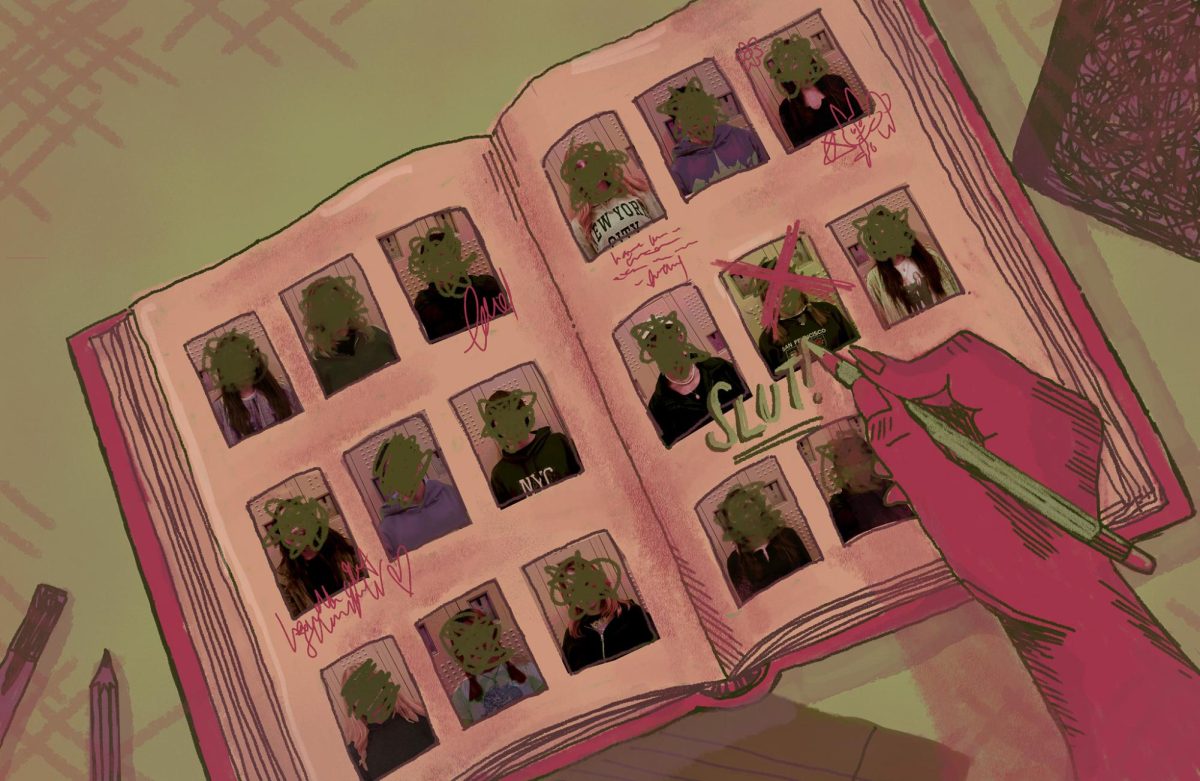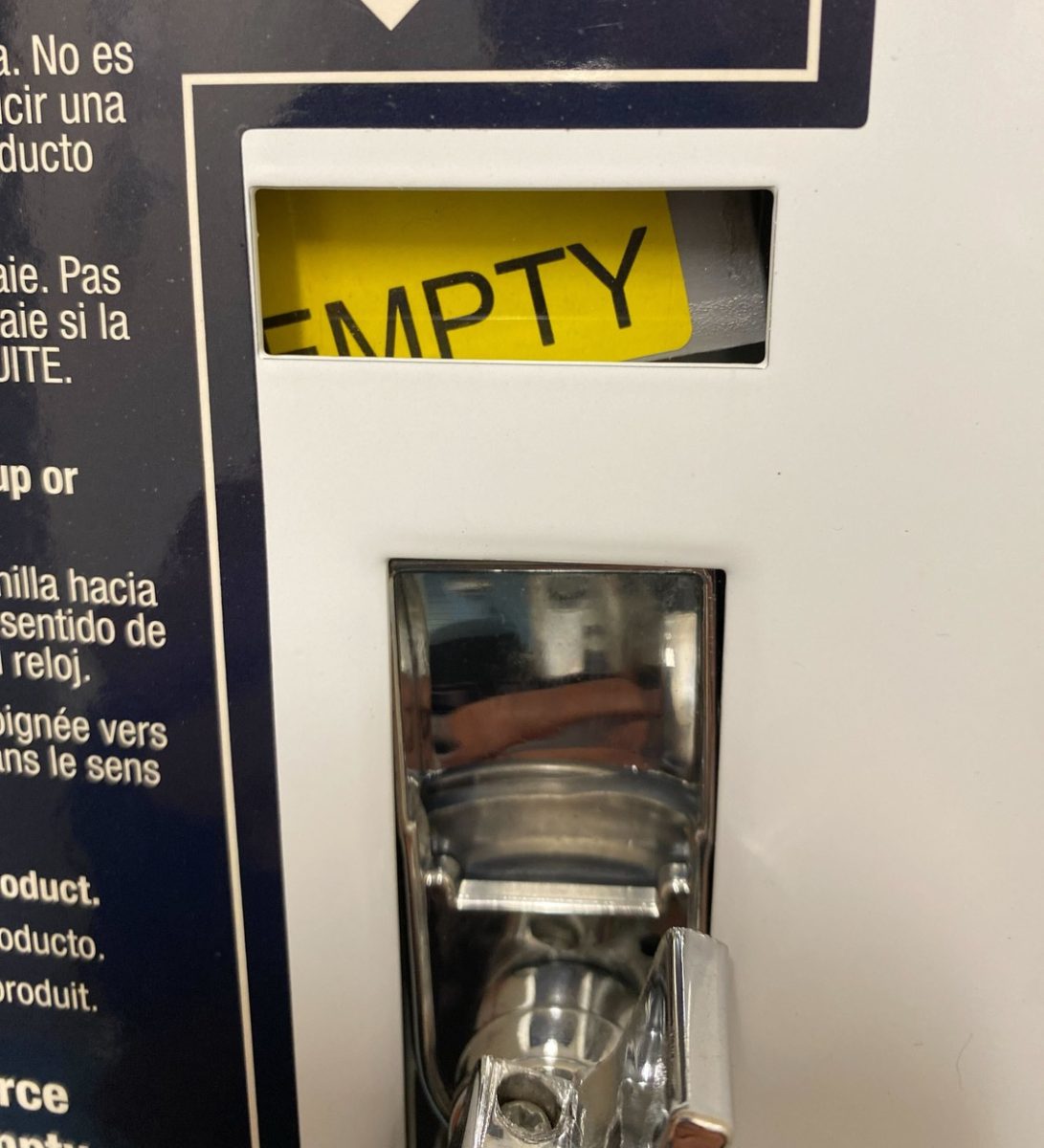By Kate Green and Beatriz Durant

Sophomore English honors courses have permanently ended this semester in a district attempt to eliminate inequitable tracking towards Advanced Placement English. Marking the conclusion of the last standing honors English classes offered at Lowell, this shift has stirred conversation over AP preparedness and altered the placement and plans of many mid-year honors students.
According to English department head Meredith Santiago, the overall process of removing English honors arose in the San Francisco Unified School District around three years ago. SFUSD saw English honors as a form of tracking, and thus fostered an impartial academic environment.
Tracking is when schools separate students by academic ability into certain classes, helping them achieve levels of difficulty which challenge them in their specific subjects of interest. Tracking feeds into honors and AP programs, which is where SFUSD identifies an issue. AP classes have to be available to all students, not just one group, in order to ensure equity. “The district told us that we could not have a selection process for AP, so we did away with that,” Santiago said.
“The problem [now] is the pacing suddenly becomes slow for the kids who are ready for something more challenging…or the course may be too hard or too fast for the kids that need more exposure, practice, and time.”
Since 2015, SFUSD has worked to abolish English honors through a series of program changes at Lowell. Gradually honors classes became open enrollment, freshman honors courses were ended and now the district has done away with the honors English program entirely. Santiago disagrees with the district’s decision. “We’re not excluding anybody and we’re letting anyone who wants to take [honors English], take it,” she said. “But the district just said no.”
With the end of honors English, Lowell faculty and students are wary of how its termination will affect students’ preparedness for AP classes. English teacher Sydney Recht taught sophomore honors English for 10 years prior to this semester, and currently teaches regular 10th grade English, as well as AP English 83 and 84 for seniors. Recht was disappointed upon discovering the loss of the course. With her honors English classes, she was able to accelerate the pace and push her students more, she said. “There’s no question to me that [honors] students go into APs more prepared,” Recht said. “You expect students to bring more to the table, be really engaged with their reading, [and] generally be at a high level in terms of writing skills.”
Junior Emily Wu, who took English honors as a sophomore and is currently enrolled in AP English, echoed many of Recht’s views on the benefits of the old course. Wu took honors English in order to challenge herself, and she considers it a worthwhile decision. “Back in first semester [of honors], a lot of analysis was helpful,” Wu said. “If it weren’t for that, I probably wouldn’t have done so well with rhetorical analysis in AP English.”

Beyond the informative lessons and discussions Wu experienced in honors English, she feels the class was especially fun, in part due to the fact that students were more animated than in regular English classes. “It was honestly one of my favorite classes to go to during sophomore year and I’m not really an ‘English person,’” Wu said. Furthermore, Wu finds it unfair that current juniors and seniors had the option to take English honors, while current freshman and sophomores do not, creating what she observes as a disadvantage entering AP classes.
In addition to the AP preparation issue, the discontinuation of the English honors program mid-school year has left 10th grade English in a jumbled half honors/half regular state, according to Santiago. SFUSD’s final decision to cut off the program was not made until after course selection last spring, meaning sophomores signed up for honors English, and then walked into non-honors classrooms once their fall semester begun. According to Santiago, the English department’s plan was to continue teaching former honors classes as though they were still honors, in order to cater to students that were initially expecting that level of curriculum.
“We’re not excluding anybody and we’re letting anyone who wants to take [honors English], take it. But the district just said no.”
Sophomore Simone Herko Felton has felt the effects of this disruption. Herko Felton originally took honors English last semester because of her interest in the subject and a desire for a challenging, engaging course. Though she still enjoys the regular English class she is taking, Herko Felton is disappointed that the elimination of honors English means she will not be able to read the texts she thought she was going to study. “I was really looking forward to reading The Great Gatsby, and there’s been this kind of weird discontinuity,” Herko Felton said. Despite this, she remains confident that even without English honors, her personal passion for writing will eventually lead her to take AP English in her junior year.
Teachers have also felt the consequences set off by the mid-year curriculum disruption. This semester the problem of having students who wanted to take honors and students who didn’t in the same classroom, has been newly accentuated. Pacing has emerged as the most significant difference between regular and honors English, according to Yu. Having taught both regular and honors, she recognizes how students in honors are more eager to put forth ideas and analysis, while their counterparts in regular English often lack the confidence to due so. According to Yu, this slight difference in timing is what makes the district’s attempt at equity fall short. “The problem is the pacing suddenly becomes slow for the kids who are ready for something more challenging…or the course may be too hard or too fast for the kids that need more exposure, practice and time,” Yu said.
Recht and the rest of the English department are working to alter English classes as minimally as possible. “I’m going to try and make it my goal to not change much and keep the class culture and the curriculum pretty similar,” Recht said. They hope that in time, this approach will help assimilate students into their new English classes while keeping the educational standards high.
The Lowell contacted SFUSD for a comment about their removal of English honors at Lowell but they have have opted not to respond to any questions.










